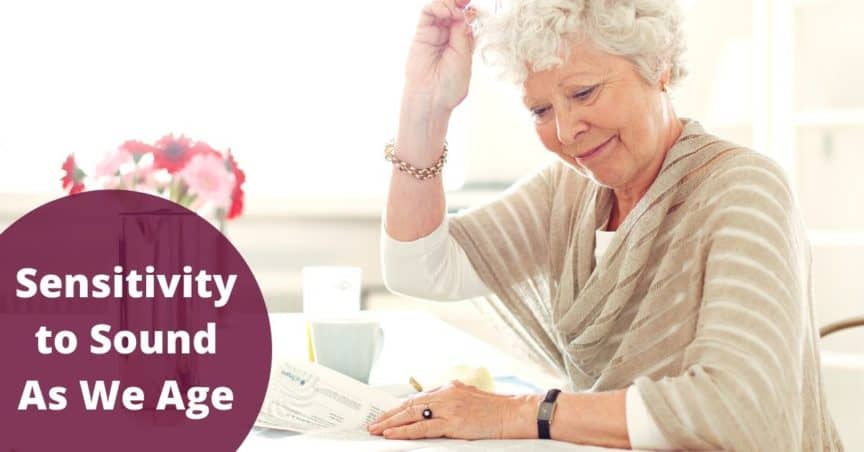Hearing loss is a very common experience of aging. As our body grows older so do our ears. Often the tiny hairs called cilia and nerves that transmit sound information to the brain break down reducing our range of hearing. Along with this can also bring a difference to how we perceive sound in general. Certain sounds may seem louder or more irritating to you when they didn’t before. To understand this phenomenon more in depth neuroscientists at Western University in Canada explored the differences between the ways younger and older adults respond to sounds.
Auditory Cortex Study
Sound sensitivity can occur even if you have not sustained hearing loss, though most commonly it accompanies this condition. When sound sensitivity is at its worst some can hardly tolerate what many others may perceive as a “normal” level of sound. To understand more of how this happens, researchers explain more of the nature of how we hear. Contrary to what many believe, we actually hear with our brains more than our ears. Our ears are used to pick up sounds, but our brain is where sound is processed. When the cilia and nerves that transmit sound to our brain become fewer, our brains have less information to work with.
Neuroscientists at Western University in Canada studied the auditory cortex of individuals in their 20s and their 60s and found much different results. The article published in the Journal of Neuroscience explained that this might explain why some individuals develop over-sensitivity to sounds.
“We looked at younger and older individuals who have clinically normal hearing and we looked at how the brain’s ability to adjust its sensitivity to sound levels is affected by aging,” said Björn Herrmann, the study’s lead writer. “What we observed is that older individuals don’t adapt as well to their sound environment.”
Filtering Background Noise
One of the most common complaints with hearing loss is the struggle to hear conversation and subtle sounds in a noisy environment. This makes going out to restaurants, attending social gatherings and going to crowded events much more challenging experiences. Often people choose to opt out and stay home which can lead to anxiety, depression and social isolation. This is not just an ear issue but also a brain issue.
Molly Henry, a postdoctoral researcher in neuroscience at the University of Western Ontario says “Our ability to hear in noisy conditions depends on how well our brain rhythms synchronize with the rhythms of the sound we’re trying to listen to.” The research shows that the younger adults were able to focus in on target signals while filtering out the unneeded sounds around them. In contrast, the brain signals in the older adults showed that they struggled more with tuning out the background noise.
Herman explains, “It’s a fundamental property of the auditory system to be able to adjust really fast to any environment a person goes into. If you cannot do that anymore, then in each situation your auditory system might be a little off. This means older individuals may be easily distracted and overwhelmed by sounds, or find them too loud,”
Hearing Aids and Background Noise
One of the many benefits of hearing aids is that they excel in filtering out background noise and reducing sensitivity to sound. Hearing aids work by amplifying sound and sending it to your ear so you can hear with existing hearing. This makes all the sounds around you easier to hear. Many hearing aids have specific settings to hear well in noisy situations and can switch quickly between sound environments to prioritize the sounds you want to hear. Not only that but they also can compress sound so frustrating sounds that you may have developed a sensitivity to are equalized, causing less stress and frustration.
Get Your Hearing Tested Today
If you are struggling to hear in crowds or finding certain sounds irritating that previously didn’t bother you, then there is a good chance you have hearing loss. It is best to not let this condition go untreated longer than it needs to. Get your hearing tested today and find the best hearing aids for you, so you can hear your best, no matter where you go.

